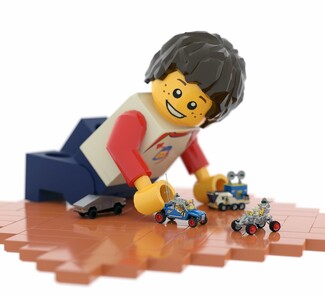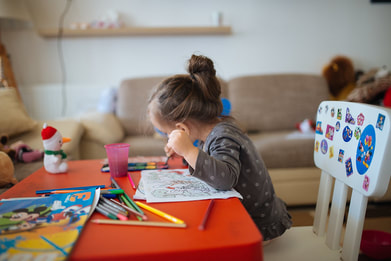About Play Therapy
 Following the child's lead, any toy, game, activity can be incorporated into a play therapy process.
Following the child's lead, any toy, game, activity can be incorporated into a play therapy process.
Play therapy is a proven therapeutic modality that allows children to grow, learn, heal and thrive. Children often do not have the verbal abilities to express their feelings. Play therapy offers children the opportunity to process thoughts, feelings and experiences, to learn new behaviours and to develop and practice appropriate coping skills. If you are located outside of Guelph, or feel it might be a good fit, Teleplay Therapy incorporates all of the benefits of Play Therapy into a virtual format. It is adapted to your child's individual needs and is a safe, effective mental health support.
Why Play?
It is through play that children learn about, make sense of, and interact with their world. The language of play is their natural mode of expression and communication, therefore it is a natural modality in which to conduct therapy with children ages 3-12 years.
How Does it Work?
When children face challenging, confusing, or traumatic experiences, they can act out, expressing anger, sadness, anxiety and other emotions through their behaviours and through play. Play therapy provides the opportunity for therapists to assess and understand children’s play, and support them in working through their issues within the play space. When children can work through problems in the play session, they are able to practice coping skills, develop more appropriate resolutions and gain insight about how to handle situations.
What Happens in Play Therapy?
Through a combination of directive and non-directive techniques, the play therapist uses a special selection of toys, games, art, drama, puppets and sandplay in the assessment and treatment of the child. Individual sessions last 45 minutes, while groups are usually 1 hour. Parent/Caregivers and other family members are invited to participate in family play therapy sessions where appropriate, or by practising suggested tools and techniques at home to enhance the therapeutic process.
What are the Benefits?
Play therapy allows children to identify, express and regulate their emotions, to process traumatic experiences, to discover creative solutions to problems, to cultivate calm and centred coping skills, to gain confidence in themselves, to practice new behaviours, to develop empathy, and to manage challenging experiences.
*Adapted from the Association for Play Therapy
